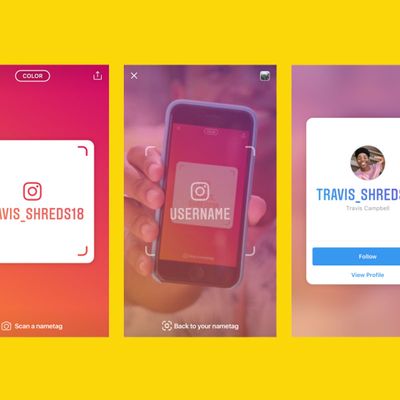
It’s only been a few weeks since Instagram co-founders Kevin Systrom and Mike Krieger announced that they were leaving the company. While they cited seeking new creative opportunities as the reason for their exit, inside sources said Systrom and Krieger had been clashing with Mark Zuckerberg over product changes to the platform. (Systrom’s CEO slot was filled by Adam Mosseri, a member of Zuckerberg’s “inner circle.”) Thursday’s announcements from Instagram seem to only further solidify the discord between Zuckerberg’s vision for Instagram and Systrom and Krieger’s.
The company is testing a new feature called “school communities” that, pretty self-explanatorily, will make it easier for users to identify themselves as students of a given institution and find their peers. “If you choose to join, you can add a line to your profile listing your university, class year, and any relevant groups such as major, sports team, and sorority,” Instagram explained in a blog post. “You and others who’ve added the same university can click to go to a directory listing all the people — sorted by class year — who have added that university, where you can follow and message.”
Ignoring the safety questions here — the company didn’t mention anything about users having to verify that they are actually a member of the Trump University class of 2022 to claim themselves as such or to view other members of the class — Instagram wading into the waters of the education market feels mighty familiar. Anybody who went to college in the early aughts will tell you that the Facebook group was where shit went down prior to, and even after, arriving on campus. People looking for roommates. People seeking information about professors and parties and club Frisbee. People making stupid comments they’d later regret, having unknowingly branded themselves as that guy before day one of college. Today, Facebook groups are still pervasive and active in the college space in different ways. Just ask the ten kids who got their Harvard acceptances rescinded after posting offensive memes in the “Harvard memes for horny bourgeois teens” group in 2017.
This is Facebook’s whole shtick. They want to create spaces where people feel free to share and discuss and interact in their digital ad space. It’s why in 2017, after hitting 2 billion active monthly users, Facebook rolled out a new mission statement centered around the concept of “community.” While users aren’t as down with posting things publicly in the News Feed as they once were, if Facebook can harness that “community” power and keep people talking … it’ll keep making money. Instagram is attempting to tap into the same thing with school communities.
The company also announced that it’s rolling out a feature called “Nametag,” which is effectively a carbon copy of the SnapTags — user-specific QR codes — that Snapchat has offered for years as a way to let users add other users without typing in a username or phone number. This is standard operating procedure for Instagram at this point. The company ripped off Snapchat’s trademark Stories feature a little over two years ago and has since gone on to beat Snapchat at its own game, as far as users and Stories are concerned. While it doesn’t feel like a feature anybody was particularly clamoring for, the end goal is clear: Get more people engaging with each other on Instagram by making things as easy as possible for them.
Instagram has plenty of issues that present users would love to see corrected. The algorithm is a known pain, and Instagram has refused — unlike Twitter — to allow users to opt to see photos in chronological order instead. (The company’s answer here was a recent feature that notifies users once they’ve seen every new post in their feed from the past two days.) The comment system currently surfaces comments from accounts with large followings or verified accounts, leading to a rise in comment spamming from accounts that fit those categories looking to capitalize on the system and further grow their followings. But Facebook owns Instagram. And unlike Facebook — out of which the latest bad news involves a hack impacting data from 50 million users — people generally, flaws aside, like Instagram. Or at least they’ve liked Instagram. If Facebook keeps leaning into Instagram to bolster its tarnished image, and making Instagram more like Facebook in the process, that will likely change in a hurry.





























